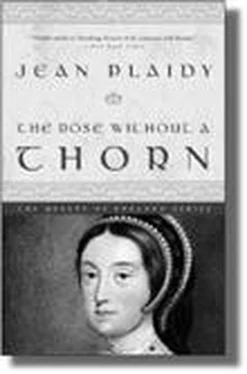Jean Plaidy - Mary, Queen of France - The Story of the Youngest Sister of Henry VIII
Здесь есть возможность читать онлайн «Jean Plaidy - Mary, Queen of France - The Story of the Youngest Sister of Henry VIII» весь текст электронной книги совершенно бесплатно (целиком полную версию без сокращений). В некоторых случаях можно слушать аудио, скачать через торрент в формате fb2 и присутствует краткое содержание. Жанр: Старинная литература, на русском языке. Описание произведения, (предисловие) а так же отзывы посетителей доступны на портале библиотеки ЛибКат.
- Название:Mary, Queen of France: The Story of the Youngest Sister of Henry VIII
- Автор:
- Жанр:
- Год:неизвестен
- ISBN:нет данных
- Рейтинг книги:4 / 5. Голосов: 1
-
Избранное:Добавить в избранное
- Отзывы:
-
Ваша оценка:
- 80
- 1
- 2
- 3
- 4
- 5
Mary, Queen of France: The Story of the Youngest Sister of Henry VIII: краткое содержание, описание и аннотация
Предлагаем к чтению аннотацию, описание, краткое содержание или предисловие (зависит от того, что написал сам автор книги «Mary, Queen of France: The Story of the Youngest Sister of Henry VIII»). Если вы не нашли необходимую информацию о книге — напишите в комментариях, мы постараемся отыскать её.
Mary, Queen of France: The Story of the Youngest Sister of Henry VIII — читать онлайн бесплатно полную книгу (весь текст) целиком
Ниже представлен текст книги, разбитый по страницам. Система сохранения места последней прочитанной страницы, позволяет с удобством читать онлайн бесплатно книгу «Mary, Queen of France: The Story of the Youngest Sister of Henry VIII», без необходимости каждый раз заново искать на чём Вы остановились. Поставьте закладку, и сможете в любой момент перейти на страницу, на которой закончили чтение.
Интервал:
Закладка:
“Few men grow as tall.”
She looked wistful. “I know. Henry’s bride will be so lucky, won’t she? Imagine being Henry’s bride and Queen of England.”
Katharine, who never ceased to imagine such an eventuality, did not answer; but Mary leapt up and kissed her suddenly because she knew exactly what was going on in her sister-in-law’s mind. Mary had always kept her eyes and ears wide open for Court gossip, and she coerced and bullied her attendants into keeping her informed. Secretly she wished Katharine luck, for she was very fond of her, although she was often irritated by all the piety and somewhat melancholy outlook. If she would but laugh more and pray less, thought Mary, Henry would be more inclined to view her with favor. Although of course royal princes and princesses could not choose their spouses and it would not rest with Henry whether he married her, unless …
She stopped her thoughts running in that direction. Hers was an affectionate nature and her father had never been unkind to her; but he had never been effusively loving as she would have liked him to be; it was simply not in his nature to be so. Yet he had shown that he was not entirely able to resist her, and it was exhilarating to know that she alone could make his lips quirk in amusement, could bring a note of softness into his usually harsh voice. But his Court was so dull, and Henry was always saying how different it might be.
She thought of her sister Margaret who some six years before had taken part in a similar ceremony when the proxy of King James IV of Scotland had come to Richmond and had married her in his master’s name. She could scarcely remember Margaret now, except that she had quarreled often with Henry. They had missed her though, because she was like they were—full of vitality, eager to enjoy life.
Arthur had not been like that; he had been more like their parents. Poor Arthur—such a sickly boy, and she certainly could not remember what he looked like. If he had lived Henry would not have been Prince of Wales but a member of the Church. Imagining Henry as Archbishop of Canterbury made the laughter come bubbling up. So perhaps it was all for the best … for Henry was surely meant to be King.
“Are you ready?” asked Katharine.
“Yes.”
“Then let us go, for they will be waiting for you.”
Mary looked about the reception room, which had been her mother’s and which had been draped with hangings of cloth of gold for this occasion, thinking: When next I see this room I shall be betrothed. I shall have a new title—Princess of Castile—and that rather vacant-looking little boy will be almost my husband. Poor Charles, I shall have to take care of him, I can see.
Thinking of him thus she felt tender toward him and was not at all displeased that he was to be her husband.
Katharine took her hand and led her into the great hall, which was hung with silk and decorated with ornaments and gold and silver plate. She saw her father standing with the Sieur de Bergues and, beside him, the Archbishop of Canterbury.
Henry was there too. He was excited because all such ceremonies delighted him; he loved grandeur and it was his continual complaint that there was too little of it at the English Court.
He gave his sister a smile as their eyes met; this she acknowledged briefly because she knew many eyes were upon her, among them her father’s.
How ill he looked! His skin was growing more yellow, his eyes more sunken; and Mary felt a pang of remorse because she had been looking forward to the time when the Court would be gay, knowing that it could mean only one thing.
She smiled at him tenderly and the King, watching his lovely daughter, was unable for a second or so to control his features.
Now she was standing before the Archbishop of Canterbury and he was addressing the assembly. The dull old man! She could not concentrate on what he was saying. She was thinking of a long ago day, before Margaret went to Scotland and they had all been in Richmond watching the barges coming from the Tower. She remembered hearing that her mother was dead. There had been a baby sister who had died too; they had called her Katharine. Life could be sad … for some people. She did not believe it ever could be for her, but that did not prevent her from being sorry for those who suffered.
“Repeat after me.” The Archbishop’s voice sounded stern. How did he guess she had not been attending?
“I, Mary, by you John, Lord of Bergues, commissary and procurator of the most high and puissant Prince Charles by Grace of God Prince of Spain, Archduke of Austria, Duke of Burgundy …”
She was smiling at the Sieur de Bergues, who was looking at her with the utmost seriousness.
“… take the said Charles to be my husband and spouse …”
It was the turn of the Sieur de Bergues, but she was wondering what disguises she and Henry would put on after the banquet. Would they dance together? She hoped so. No one could leap so high and so effortlessly as Henry.
The Sieur de Bergues had taken her hand and was pushing the bridal ring onto her finger; then he stooped and, putting his lips to hers, gave her the nuptial kiss.
It was really a very simple matter—giving a solemn promise to marry.
From the Palace windows she could see the light of the bonfires, she could hear the sound of rejoicing. The people were going wild this day, and all because their little Princess had gone through a ceremony solemnizing the nuptials between herself and the Prince of Castile.
Inside the Palace the merriment was even greater. It was not often that Henry VII gave his courtiers an opportunity to be extravagantly gay. For this occasion noblemen and their wives had brought out their richest jewels. It was folly to do so because the King would note their wealth and set his cunning ministers, Dudley and Empson, to find means of transferring some of his subjects’ goods to the royal exchequer. But they did not care. They were starved of pleasure, they wanted to dance and masque, joust and hunt; they wanted to wear fine clothes and dazzle each other with their splendor; they wanted to vie with each other; and this was their chance to do so.
Mary was surrounded by a group of her women. They were all talking at once, so it was impossible to hear what they were saying, but she understood that they were to wrap themselves in gauzy veils, which would give them an oriental look, and there were masks to hide their faces, that they might mingle with the dancers and remain unrecognized. This was Henry’s idea and she thought it a good one.
Her women were exclaiming as she stood before them. “But I declare I should never have guessed! The Lady Mary is tall for her age. Why, no one would believe she was not yet a woman …”
“Hurry!” cried Mary. “I can scarce wait to be among the dancers.”
In the hall, with her ladies, she joined other masked dancers whom she knew to be Henry and his friends.
She heard whispers: “But who are these masked ladies and gentlemen?”
“I have heard they come from far off places to see the English Court.”
She laughed to herself as she picked out a tall figure. She was certain who he was and, going up to him, touched his arm.
“I pray you, sir,” she said, “tell me how you came here this night?”
He was trying to disguise his voice, she guessed, and she had to admit that he did it admirably. “Might I not ask the same question of you, Madam?”
“You might, but you would get no answer.”
“Then let us agree to curb our curiosity until the unmasking. Would you dance with me?”
“I will do so.”
So they danced and she thought: I have never been so happy. “This is the most wonderful ball I have ever attended,” she told him.
Читать дальшеИнтервал:
Закладка:
Похожие книги на «Mary, Queen of France: The Story of the Youngest Sister of Henry VIII»
Представляем Вашему вниманию похожие книги на «Mary, Queen of France: The Story of the Youngest Sister of Henry VIII» списком для выбора. Мы отобрали схожую по названию и смыслу литературу в надежде предоставить читателям больше вариантов отыскать новые, интересные, ещё непрочитанные произведения.
Обсуждение, отзывы о книге «Mary, Queen of France: The Story of the Youngest Sister of Henry VIII» и просто собственные мнения читателей. Оставьте ваши комментарии, напишите, что Вы думаете о произведении, его смысле или главных героях. Укажите что конкретно понравилось, а что нет, и почему Вы так считаете.












